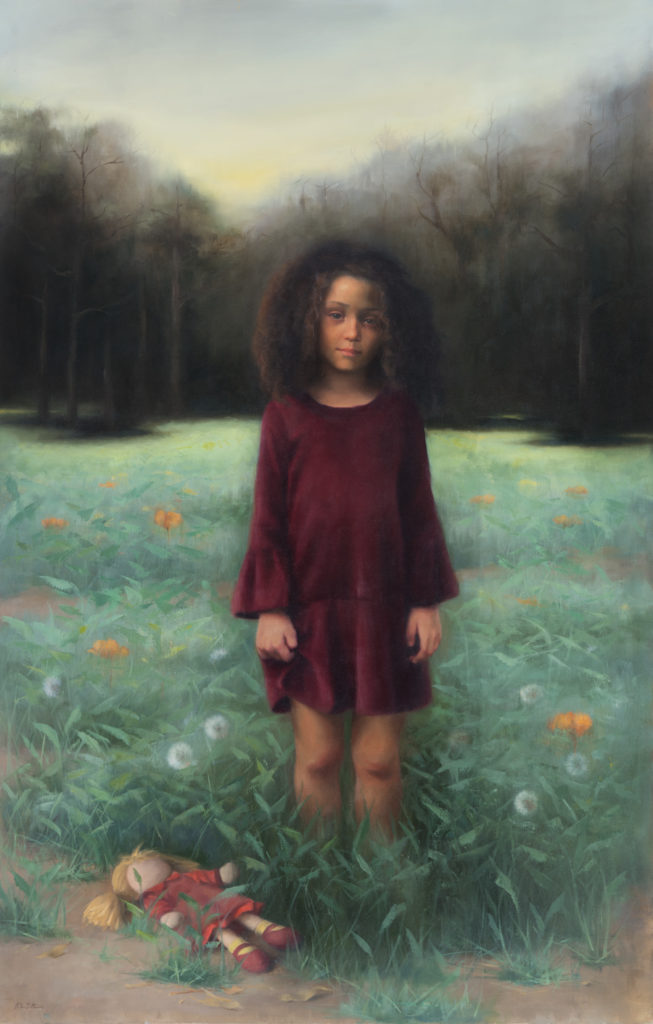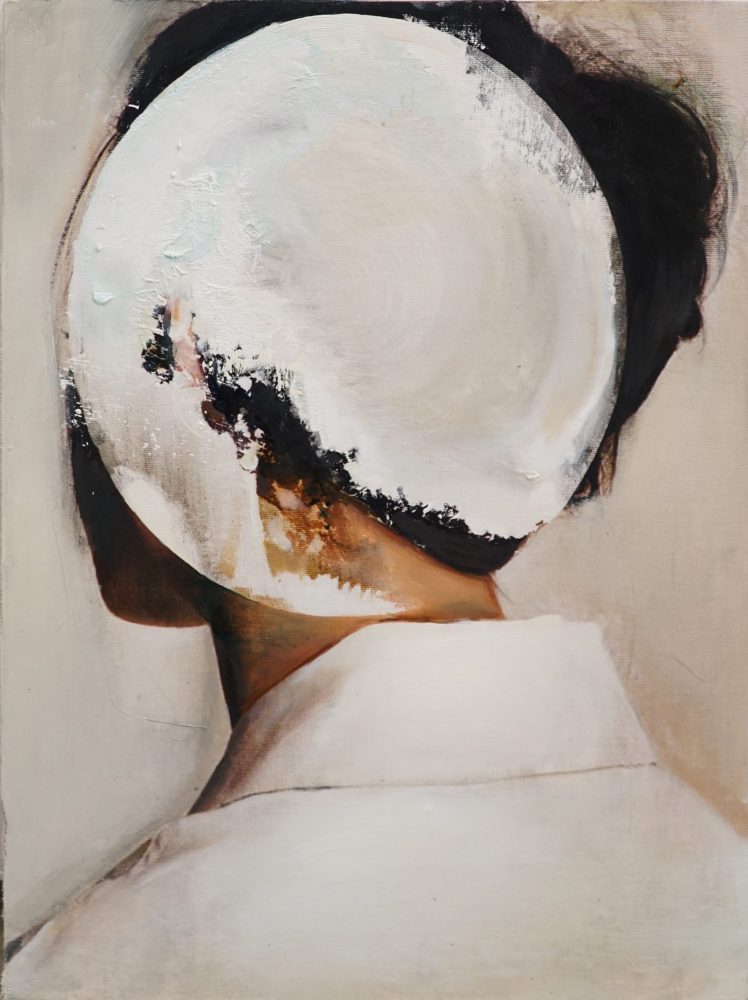
Courtesy of the artist and Zemack Contemporary Art, Tel Aviv – www.danazaltzman.com
In the very first days of her life, she was known as a little hedgehog, a furry thing. The entire maternity ward called her by this nickname, this child whom everyone had so patiently watched for in the months her mother was confined to bed rest. Beyond her own family was a whole hospital ward engaged in the hopes and happenings of the funny room at the end of the faded, sterile corridor—a room that over the inexorable passage of days and weeks had filled with bright colours, perfumes and visitors. They spoke to the belly, told stories, and talked of how life would be when its little inhabitant came out, they asked for updates, the chosen ones kissed the belly tenderly, in fear and awe, they told the child to take her time, but to come, yes, to come. The child was called to, the child was waited for.
And the happy birth came to pass.
The baby came, accompanied by abundant black hair strewn in a dense, soft mass across her tiny skull, so fragile in the hand, her heartbeat visible at the temples. A little knoll of satin hair, warm, with a baby’s exquisite smell, so tiny and already so blessed, heralding better days, a new life—a life in which, a life for whom, I would proudly be a first guide. The foetus had grown almost all alone in the hollow of her mother’s body, the two of them lying in one of the clinic’s rolling beds, blessed and borne towards life by forebears who had already died, and perhaps this is why she developed so much hair, perhaps she was marked by the seal of the genealogy to which she now belonged.
Indeed, I believe it was while looking at my sister that I intimately understood what family was—I, who had never recognized myself in anyone. I realized that our faces and our personalities may have been different, but we all shared the same abundance of hair. This constant was easily confirmed by unfocusing my eyes, my myopia rendering us abstract: we were tall poles crowned with tangles of black. Dark, unruly tangles, witnessing the passage of generations from above our heads, growing and growing back, often so fast we might think we were born under the full moon. But that isn’t so. We are simply not from here.
Yes, because this is the same hair that inhabits images interlaced in a ragged braid of photos of a past which, though it may be unknown to us, lives within us still. A faraway past, lingering near the deserts in the mellahs of countries we left in search of a better life, where the smell of roasted peppers, black bread and peaches saturated the thick and heavy plaits of the matriarchs. In these snapshots you can easily pick out the headdresses of these great-grandmothers, some of whom are wrapped in shawls, posing beside jars of candied fruit and terracotta amphoras where oil is kept; true treasure. Next to them, their bareheaded children, who have been roughly groomed for the occasion, as some of their impudent faces seem to suggest.
Our hair comes from somewhere. It is a compass, an identity card, tying us to one another. Our hair is more Jewish than we are—and sometimes it bothers the uninitiated, who are, perhaps, at heart a little jealous, and who, not content to mistake us for one another, will demand we comb it, straighten it, tie it up, or will shamelessly liken it to straw or horsehair. And for what?
Our tousled cowlicks are quite often the arena of emancipation or struggle, personal or political alike; the presence as much as the absence of our hair reveals something intimate about us. Our choices, our expectations, our doubts too, the things we have renounced, and sometimes, often, a thousand-year-old anguish, the anguish of losing all you have. Reducing our hair to the level of the aesthetic would be, in part, a betrayal. Our hair is more than that—the proof, that we find it on others who, though we may not know them, look like us.
When they fall, our wisps and curls may remind us that we ourselves will die, but mostly they are a channel of identity, of memory, for those who came before us and for those who will follow us,
whether they are cut,
whether they are lost,
whether they, or we, are shorn.
Translated by Emma Roy

